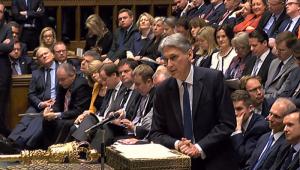The Office for Budget Responsibility’s autumn economic forecast is an admirably clear and detailed document. As expected, the OBR revised up its GDP growth forecasts for 2010 but revised them down slightly for 2011 and 2012.
The new forecasts are broadly similar to the consensus view on economic growth and there has been no material change to the medium-term public borrowing projections since June. So there is nothing here to cause the government to change its tax and spending plans.
However, the fiscal squeeze will be painful and risks to output and employment growth are weighted to the downside, bearing in mind continued problems in the euro zone and relatively fragile consumer and business confidence in the UK. PwC therefore expects public borrowing to fall somewhat more slowly than indicated in the OBR’s central projection, although the difference is within the wide margin of error surrounding any such medium-term forecasts.
The OBR forecast that total UK employment will rise by around 1 million by 2015 is achievable based on the experience of the 1990s but challenging. Again, risks are weighted to the downside given the effects of the fiscal squeeze and the fact that the international economic environment appears less favourable for export-led growth than in the 1990s.
Estimates of central and local government job cuts over the next four years have been revised down from 490,000 to 330,000, but this will be offset in part by reduced welfare spending compared to plans announced in the Emergency Budget in June. This will cause welfare benefit recipients to reduce their spending and so will have an indirect negative impact on private sector output and employment.
The OBR report also highlights the longer-term challenges to fiscal sustainability from an ageing population in terms of the additional public spending required on pensions, the NHS and long-term care. This mirrors the findings of past PwC research on this topic and is a challenge that future governments will have to deal with through policies such as further rises in state pension age over and above current plans.
John Hawksworth is chief economist at PricewaterhouseCoopers











